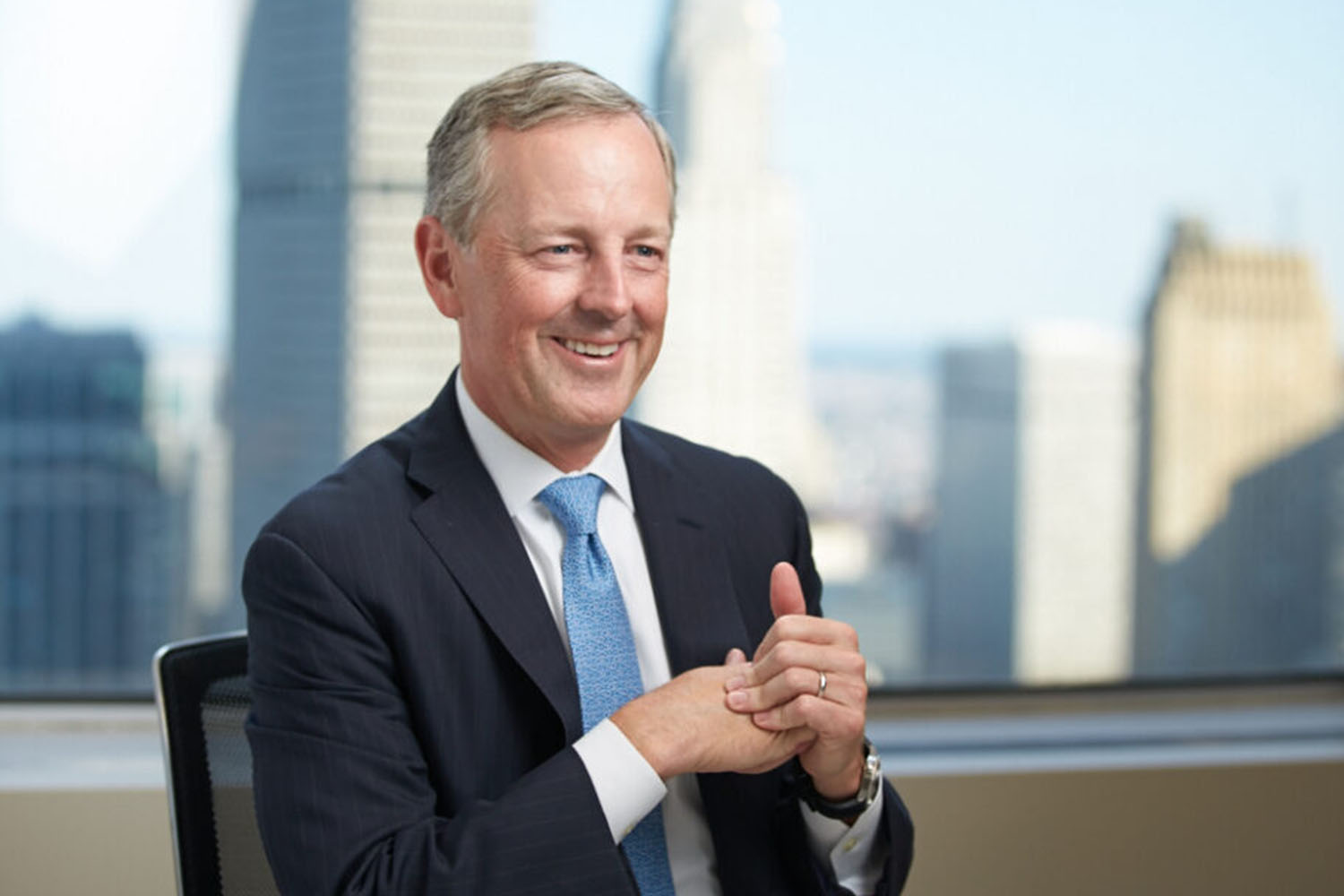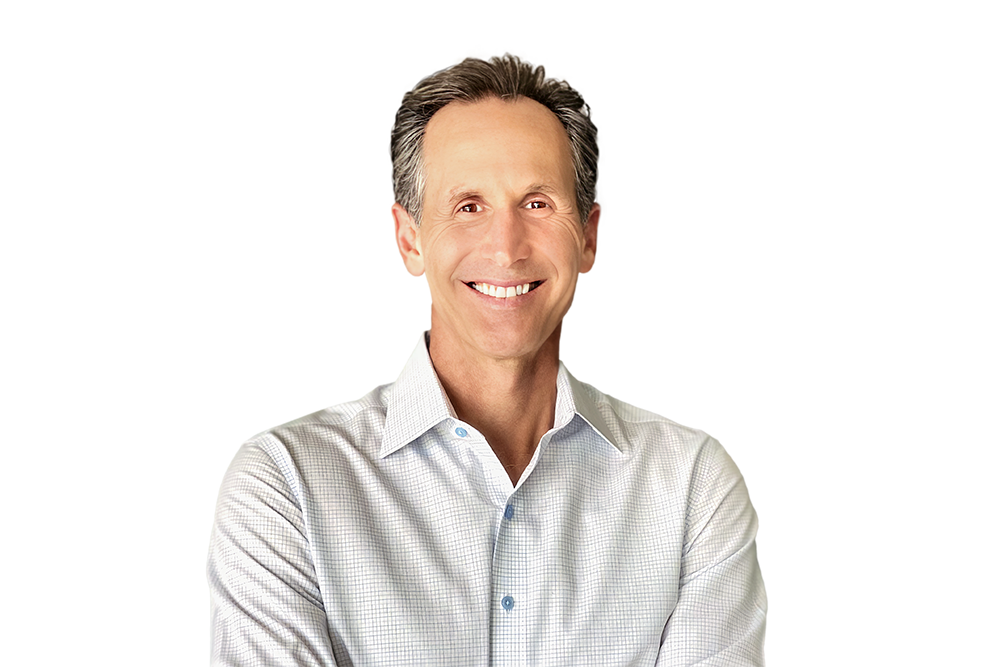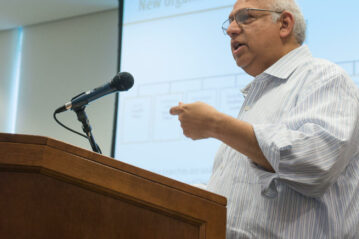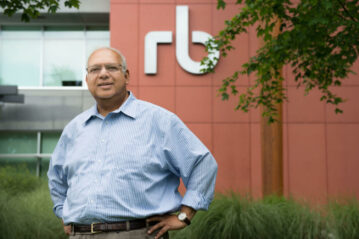Client Perspective: President & CEO John Doyle of Marsh

Designed to help CEOs and senior executives grow in their leadership, this occasional series offers insights that are seldom seen in textbooks on leadership and strategic planning.
As president and CEO of Marsh, John Doyle oversees Marsh’s brokerage and specialties, underwriting, digital technology, and consulting practices worldwide. Marsh is a part of Marsh & McLennan Companies [NYSE:MMC]. John was named CEO of Marsh in July 2017, and he previously served as its president since February 2016. John also serves on MMC’s executive committee. He joined Marsh from AIG, where he held a number of executive positions in his 30-year career there. John is a graduate of the University at Buffalo, and he is on the board of the New York Police and Fire Widows’ and Children’s Benefit Fund, and a trustee of the Inner-City Scholarship Fund.
John talked candidly with RHR’s senior partner David Astorino about the leadership skills and business philosophy that have enabled him to build and lead companies both large and small.
David: What is your leadership philosophy? How do you instill confidence among your many different stakeholders—regulators, brokers, partners, and employees in the company, for starters?
John: It begins with authenticity. That to me is the most important characteristic for effective leaders. We do have to answer to numerous constituencies in our industry. These are highly educated people who can see right through you if you’re not authentic. Next is transparency, followed by being clear on what your priorities are and what you’re trying to accomplish with those various constituencies. I think there’s a lot to learn from all of those constituencies, so being a good listener is critical.
David: There’s a certain humility to you that allows you to get into the shoes of someone else. Would you put humility in that mix, too?
John: I suppose so. But I don’t necessarily come to the office thinking I need to be humble. I’m practical about the fact that we work in a very complex business. We’re serving different types of clients—from organizations and individuals, as well as big, medium, and small businesses. And we advise them on all different types of risks. And that’s just one dimension of our business.
I do think it’s important to be confident, decisive, and clear. When you think about it on the risk dimension, there are so many different risks that we try to help our clients navigate. It’s incredibly interesting. At Marsh, we talk about being there during moments that matter. I really like that because there’s a real purpose to what we do. Whether it’s at a time of investment to drive innovation or at a time of loss like the nor’easter storms that hit late this winter, we are there making a real difference.
David: You’ve been in many different business situations. Has your leadership philosophy changed with your circumstances or remained the same?
John: Authenticity, transparency, and listening have always been in the mix, no matter the circumstance. Leaders often don’t focus as much on communicating their priorities. One thing all leaders can do more is to lean in to make sure folks understand what the company is trying to accomplish. Because if you don’t, the results won’t be stable for long. Having only a few priorities and being very clear and consistent about communicating them is key.
David: Given RHR’s work, we have had a long-standing interest in scalable leadership—leaders who can adapt to the demands of increasing complexity, scale, and impact. This is something you’ve done very effectively: adapting to different levels of scale and complexity. How do you do this?
John: The more senior the role, people are going to hang onto every word you say. So focus is important. I know I’ve got to say the same thing every single time; otherwise, with a global and decentralized organization, people can end up working at cross purposes.
David: Tell us about how you developed into a leader.
John: I’ve always enjoyed the responsibilities of leadership. It didn’t just start when I joined the workforce. Whether it was in team sports or even in the neighborhood organizing kids to get together to play games, there was an element of leadership. Trying to get my four brothers to accomplish whatever it was—this was a challenge.
When I was a trainee at AIG 32 years ago, I found I was constantly in search of context. I was a player on an eight-person team at that time. I had a sense of how I was doing. What I wanted to know was, how’s the team doing? How is the division doing? How is the subsidiary performing? I think it’s really important for our colleagues to understand the context around decisions that we make. Why are colleagues, clients, and growth Marsh’s priorities? Why are we pursuing a certain path? Our colleagues who think that way are the leaders of the future.
David: Sometimes we have mentors or experiences that teach us about leadership. What stands out to you in retrospect?
John: I was very fortunate to enter the business world as a trainee in directors and officers liability insurance. And I say that because part of the underwriting process was quizzing executives about the challenges and opportunities in their businesses—how they were navigating them. This was an incredible opportunity to talk to the general counsel of a company or the CFO of a company and occasionally even the CEO. As part of that training, I became an observer of leaders—in our firm, outside our firm— when I read the news.
David: Did you have mentors who have shaped your leadership?
John: Two incredibly influential leaders that I worked for were Hank Greenberg and Bob Benmosche. They were powerful and forceful and had different approaches. Bob was more focused on the process and approach of how you got to an outcome and Hank was very entrepreneurial.
Both approaches are incredibly important in terms of leading a company and team. It was fascinating to see how each one of them led. I really tried to learn from these approaches and challenged myself to do it in my own way. Both of these mentors were CEOs of AIG at different times and under very different circumstances. But to work for two leaders who accomplished so much in our industry was pretty instrumental. I learned from other mentors along the way too.
David: Let’s talk about diversity—globally diverse teams, different generations, different ethnicities, different cultural backgrounds. Why is that important to you?
John: It is a team game, the insurance business. For us to effectively serve a client, we need colleagues with all different kinds of skills. We need deep risk experts. We need colleagues that can help clients manage the cost of risk or invest in capabilities that will mitigate risk over time. The wide range of skills that you need to effectively serve a client is one of the fun things about our business. We do so many different things and need to do them well. And so that takes all types of colleagues with different backgrounds and different educational experiences who think differently.
As a leader, one of the most important things is to understand what your own blind spots are. I’m not going to be that deep technical expert in various risk practices that we have here at Marsh. Coming up with that diverse thinking, those diverse backgrounds is really important. And creating the opportunity for people to have a voice and to make sure their voices are heard is also important because some might be very willing to offer their opinions and then others on the team who have really important things to contribute might not be that kind of leader. There’s no question we’re so much stronger as a group than we are as individuals.
One of the great things about working here is that many people have such powerful and different experiences. And our job is to serve our clients. We’re paid to have an opinion.
David: One of the dynamics that can lead to bad decision making in companies occurs because the higher up you go, the more power is embedded in roles. When someone becomes the CEO or the person in the highest-ranking job, suddenly even people who used to be very candid and forthcoming unconsciously hold back or massage the message…they don’t want to take risks anymore.
John: I think it’s really important to create a safe environment where people can speak their minds. Even at the executive committee level, I’m always asking my team for their views. I make it very clear to everyone that I want their input. We are very fortunate here. We have a highly engaged executive committee. But I hold a lot of skip-level conversations too. One of my favorite things to do when I travel is to meet with young professionals and emerging top talent in cities all around the world. What I enjoy about those conversations is I don’t have to encourage them to speak. I also try to see a client every single day to hear directly from them how we’re doing.
We’d like to thank John for taking the time to sit with us and talk in such depth.








